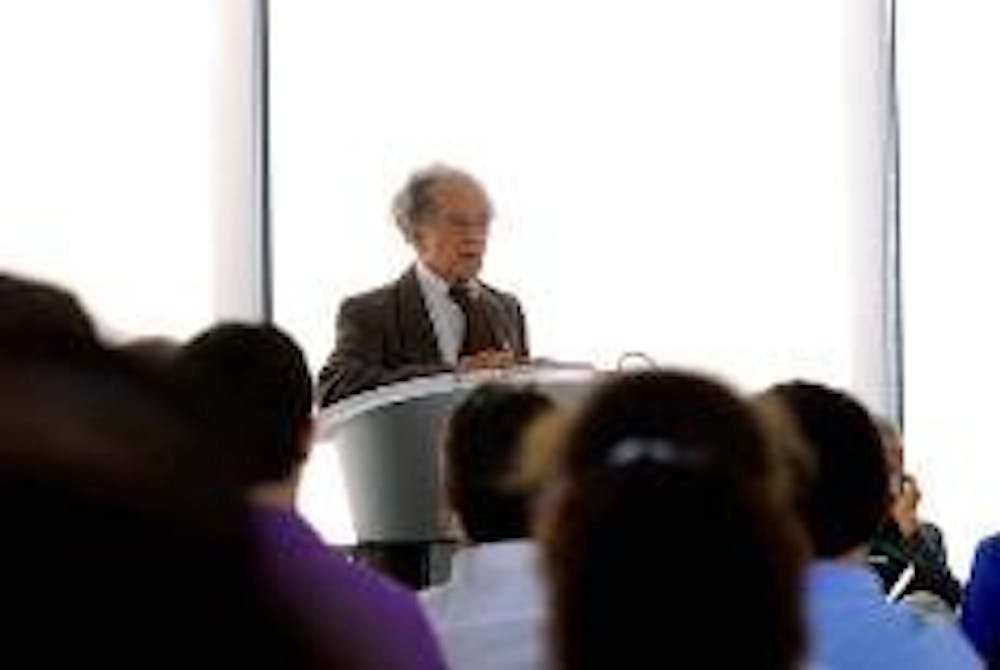
Most professors probably wouldn't question the worth of a disabled baby's life.
Peter Singer, however, is not your average professor.
In his book Practical Ethics, Singer wrote that "killing a disabled infant is not morally equivalent to killing a person. Very often it is not wrong at all." Singer's theories hold that beings' rights are closely related to their potential to cause and experience suffering and to determine their future.
Penn's Political Science Graduate Student Organization presented Singer, a bioethics professor at Princeton University, with the Scott Nearing Award for Courageous Scholarship yesterday in Stiteler Hall.
The award honors scholars whose views and work have met resistance. It is named for Scott Nearing, a Wharton professor in the 1910s who was ostracized for his outspoken position against child labor.
Nearing wrote his book, The Solution of the Child Labor Problem, at a time when "most businessmen considered child labor a solution," said Stefan Heumann, co-chairwoman of the Graduate Student Organization. Fearing controversy, the Board of Trustees of the University decided it was best to fire Nearing.
Singer said yesterday that he, too, has faced opposition for his convictions.
His opponents, including what he described as "anti-fascist liberals" and Roman Catholics, contend that it is "impermissible to question the life of infants," Singer said.
And when Singer was appointed to the faculty of Princeton, a prominent alumnus, Steve Forbes, threatened to withhold further donations, Singer said.
He added that no ideas should be suppressed just because they are viewed as false.
"The usefulness of an opinion is a matter of opinion," he said.
Singer said he has never shied away from a controversial issue and advocates partisan views in the classroom.
"I want to challenge [students'] values," Singer said. "That's the way I get them to think."
Tim Weaver, a member of the Graduate Student Organization, said academics such as Singer should not be denied their freedom of expression, even if they promote controversy.
"We need courageous scholars who will stand up for academic freedom and engage the world, even if it elicits harsh, unrelenting criticism," Weaver said.
Singer was presented with a glass, diamond-shaped plaque.
"I will put it on my desk or bookshelf," he said with a chuckle. "I'm very honored."
First-year American History graduate student Robbie Wood said he expected that Singer's speech would provide him with a "stimulus for approaching new ethical practices."
He "fulfilled my expectations," Wood said. "He is very charismatic."
The Daily Pennsylvanian is an independent, student-run newspaper. Please consider making a donation to support the coverage that shapes the University. Your generosity ensures a future of strong journalism at Penn.
DonatePlease note All comments are eligible for publication in The Daily Pennsylvanian.







